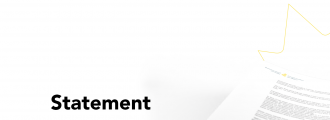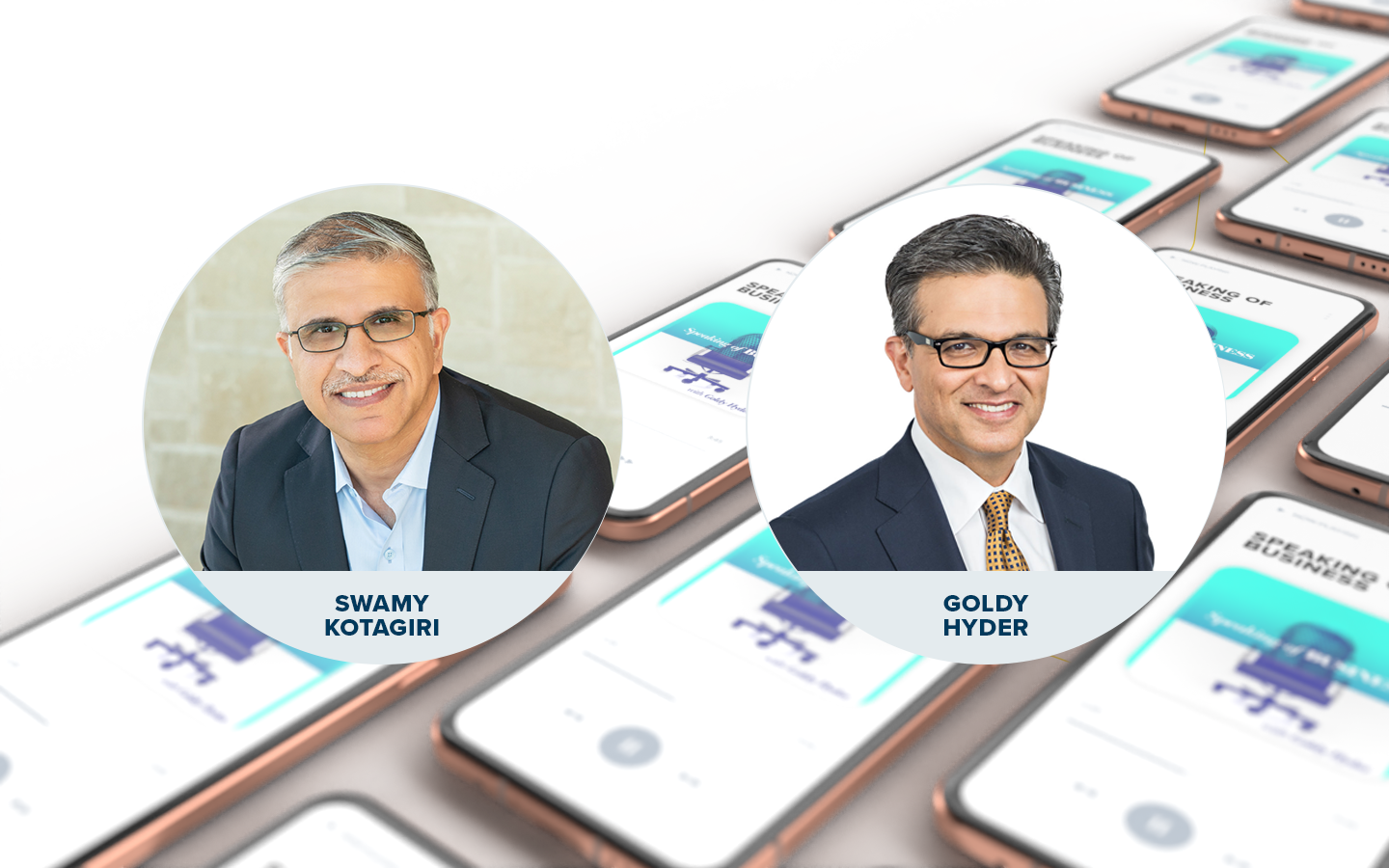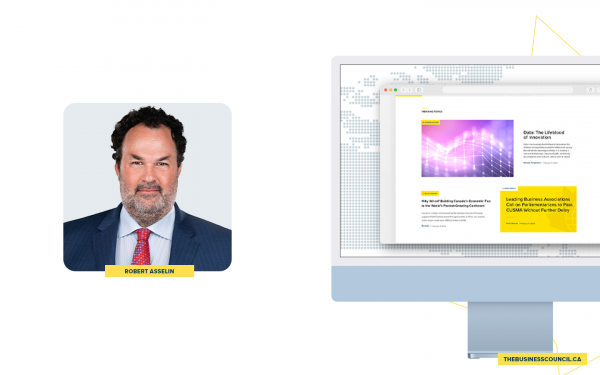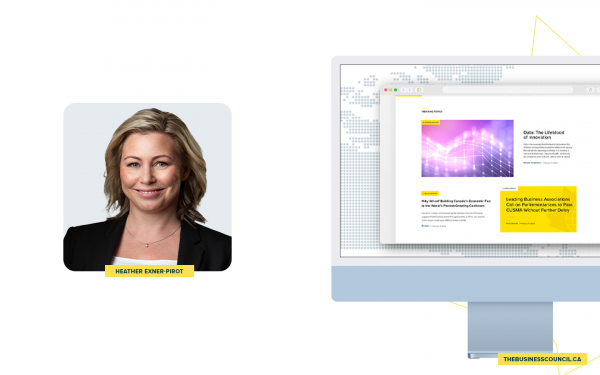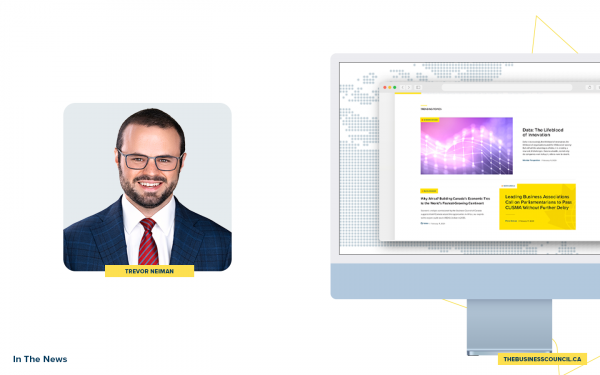The 60-year-old startup: How Magna stays agile in a fast-changing industry
Canada’s Magna International is a $40 billion company that employs more than 158,000 people in 28 countries. Yet in the eyes of its CEO, it’s really “a 60-year-old startup”.
“We are still a startup because we are in a $3 trillion industry and it’s changing,” says Swamy Kotagiri. “Every time there is change, there is opportunity.”
The Aurora, Ont.-based auto parts manufacturer knows it has to stay nimble to keep pace with the evolving needs of the industry. That’s especially true when it comes to the development of electric and autonomous vehicles.
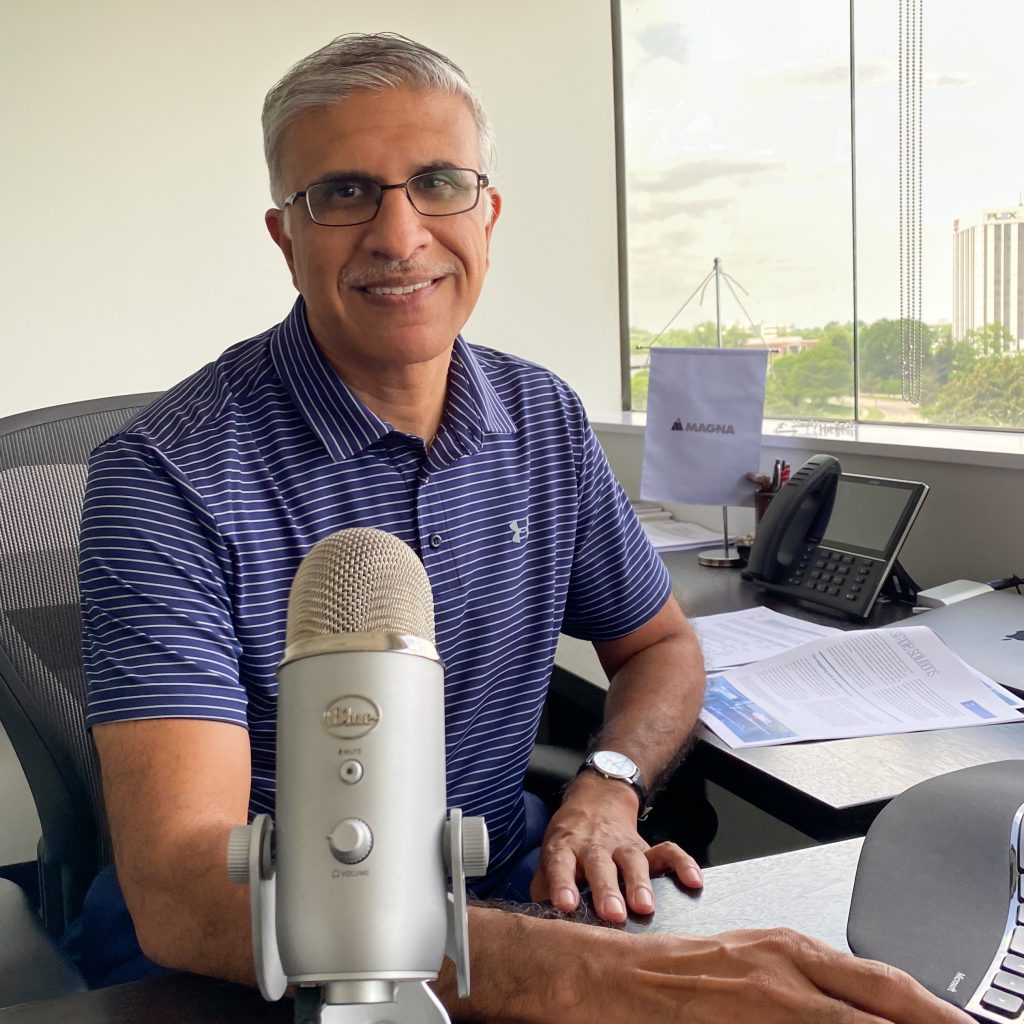
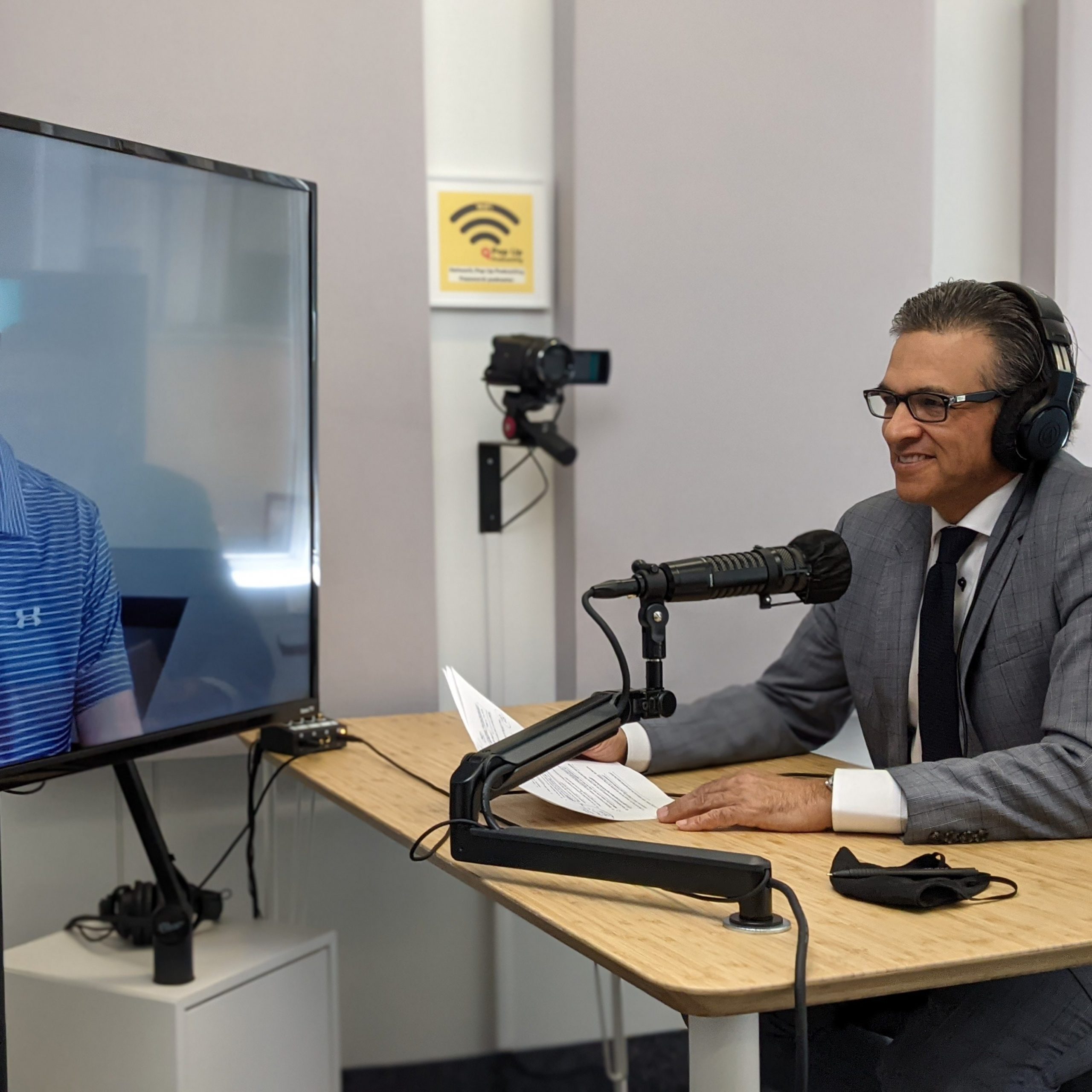
Kotagiri points to Magna’s “rich heritage of innovation” as the foundation of its extensive research and development activities. But the company also maintains a raft of partnerships with universities, research institutions and fledgling companies.
It’s a “symbiotic relationship”, he says. “They bring the idea, they bring the fundamental science, the tech or the concept. We can take that and find the right application.”
So what can customers expect from Magna when it comes to next-generation electric vehicles?
“I am very optimistic about the next steps that the industry will go through,” Kotagiri says. “This is just the beginning — and the right beginning.”
Latest Podcasts
Transcript
Swamy Kotagiri:
I like to think of we’re a $40 billion company and we are still a startup. Because we are in a $3 trillion industry and it’s changing. And every time there is change, there is opportunity. We have a great place today. And with all these changes coming, if we do the right things, exciting things can happen.
Goldy Hyder:
Welcome to Speaking of Business. I’m Goldy Hyder President and CEO of the Business Council of Canada. It’s finally summer in Canada, after a long and difficult few months. As I think back to the many conversations I’ve had on the podcast this year, I realized one central theme keeps emerging, leaders adapting to change. The COVID-19 pandemic has disrupted the way we live, work and interact. But that disruption has also spurred creativity and new ways of thinking. And as Canada faces the challenge of rebuilding after the pandemic, change will continue to be key to our recovery. Swamy Kotagiri knows a thing or two about change. As the CEO of Magna International, the self-declared tech geek is focused on developing new solutions to make vehicles safer and cleaner. A global leader in mobility technology, Magna likes to say its “driven people” are “driving change.” So how is the storied Canadian company adapting to change as we look towards a post pandemic future? Let’s find out. Welcome to the podcast, Swamy.
Swamy Kotagiri:
Good afternoon Goldy. And thank you for having me.
Goldy Hyder:
Let’s start with that Magna motto, “Driven people, driving change.” What does that mean to you?
Swamy Kotagiri:
The foundation of Magna really has been about… is built on people and the culture of the people. Maybe I’m a little bit biased, but I definitely would like to say very fortunate to have one of the most talented teams in the industry and with the whole slogan of “driven people, driving change” comes from the fundamental foundational aspect of the entrepreneurial decentralized culture of Magna, where everybody feels accountable, everybody feels responsible and everybody is excited to adapt to change and make it an opportunity.
Goldy Hyder:
Now that sounds like something you could do if you were a startup, how do you at the size of Magna maintain that spirit of innovation?
Swamy Kotagiri:
Yeah, I’m glad you said that. I’ve said this often in many public forums, I would like to call Magna as a 60 year old startup. I can say that because of the longstanding entrepreneurial culture, which is really the bedrock that empowers our employees to develop and to implement new ideas. If you really look at the compensation motto, not just at the leadership level at Magna, but at the management of every division, all 350 divisions, they are compensated based on the plan they come up and on the profit and loss, which they live by every day. That’s really brings forward the ownership, the accountability and responsibility really into practice. With that as a background, it helps us to be really agile because you really don’t have to go through 10 steps to get something approved or to make a decision. We have a framework within which we have to operate, obviously. But once you have that framework and you know where you’re going, you don’t really have to go through a long process to do anything. That’s what keeps us going still like a startup I believe.
Goldy Hyder:
Well its working. You’re doing well. And you’re leading in the area of change something I mentioned in the introduction. In addition to obviously everything going on with the pandemic, the climate change agenda is front and center in your industry. Talk to me about how you view that.
Swamy Kotagiri:
Yeah. And like you said, climate change is really the macro driver and it goes beyond the automotive industry. Everybody has a responsibility in doing their part and as an automotive industry has looked at it and the way we are addressing it is the tailpipe emissions. Which is very tangible to the people in discussions, but there is more to it, but let’s start with how we are doing it. As we look at how the industry addresses climate change and how we are doing our part, the result is electrification of vehicles.
Swamy Kotagiri:
When we electrify vehicles, we’re addressing two things, one the emissions from the tailpipe and producing carbon dioxide and so on. But on the other side, we are also looking at, the air quality. The particulate matter material and air and so on and so forth. So electrification is really a solution to the problem we are trying to address. And if you go beyond that in manufacturing, obviously there’s a whole lot of things in terms of recyclability, the footprint of the water usage, the power mix that you have, and it can go a long way, upstream and downstream. We talk about electric vehicles, but you got to take into account how you mine the minerals that are required to make batteries. What do you do with the batteries after the life is done in the vehicle? So it’s a much more complex problem than what we usually discuss.
Goldy Hyder:
And you don’t have an answer to that question even today and yet you’re taking the leap.
Swamy Kotagiri:
No, I think just like any other technology electrification is at the infancy, I would say still. We have to start and we know that tail pipe emissions contribute a lot to the problem today. So by addressing that we have started on the right path. Now comes what I call the secondary and tertiary issues of how do we optimize the value chain for them, by using the right mix of energy in the mineral extraction, in making the batteries and making batteries more efficient by using them for more number of miles with the same life. And once they’re done, how do you recycle them? I am very optimistic of the next steps that the industry will go through. This is just the beginning and the right beginning.
Goldy Hyder:
Where do you see the technology going? In terms of how it’s going to change the way people use their vehicle. You’ve talked I think at Magna, not about autonomous as much as assisted driving vehicles, for example. What does the future look like?
Swamy Kotagiri:
The future is really exciting. When I say that, I always say, “If there is no change, there is no opportunity.” And we are really at the crossroads of mobility being looked at from a different perspective. There is so many facets to this issue. What we just talked about is what’s the impact of the macro issues and how is industry addressing it? That is electrification, we’re addressing safety by having additional features that make driving more convenient, more efficient, more safe. And in the long run, even address it with full autonomy, by reducing congestion on roads, better usage of the asset, which is your car. There are many facets to this problem. When you look at it today, I would say there four big themes that everybody’s talking about. One is, as an industry, electrification therefore addressing climate change, making the experience safer, more economical, still enjoyable.
Swamy Kotagiri:
And that is assisted driving and towards the path of autonomy and just the general need of people to stay connected as they move from their office or home into a car, they want a seamless transition. That means they still want to be connected, being able to do what they were doing before they got into the car. That is the connectivity piece. And then there is this huge discussion on mobility as a service, not as much as ownership, but a utilitarian function. How do I get from point A to point B in the most efficient, economical, enjoyable way? So it changes the perspective of ownership to a service. I would say these are the big themes that the industry is trying to address. And like I said, that’s what makes it so exciting to be in this industry right now.
Goldy Hyder:
Who is driving that change? Is it a push or a pull here? Or is it because of government policies on climate or is there a customer push at the other end or does the customer even understand how things are going to change for them as they look forward?
Swamy Kotagiri:
I think it’s both Goldy. If you look at the legislative regulatory requirements that came from an emissions and climate change perspective, it started off as a pull, or a push from the regulatory side. But you see different vehicles now and there is excitement of sitting in an electric vehicle, the wow factor of when you put your foot on the pedal and what you get, in terms of power and the speed and the quickness and no noise. And just the experience inside, the interiors that it’s providing, the dashboard is digital. It’s completely different experience inside. So what started off as a push by regulation is now starting to become a pull from the consumer side.
Swamy Kotagiri:
And if the battery cost continue to trend in the right direction as volumes and take rates increase, it’ll become even more important, I think. And the same thing applies to ADAS and autonomy too. What starts off as the requirement to make a driving safe now has become certain factors that are just enjoyable. Once you get used to a highway chauffer or traffic jam assist, where you’re sitting in a traffic jam at low speed, but you don’t have to do anything. It follows the car in front of you and you’re able to be legally distracted I should say, all this is convenience. And there is a sense of excitement there. So it’s a combination of both push and pull.
Goldy Hyder:
Now the key to climate change, many people feel the solutions lie in innovation and really in technology. Obviously, behavior change is a part of that as well. But how is Magna really thinking about the innovation economy? How is Magna making the decisions in where to invest your global company, where to invest those dollars and let’s get specific to why I’m asking. Which is how can Canada compete to get that capital allocated here? So the innovation can happen here?
Swamy Kotagiri:
I think when you look at a innovation ecosystem, our firm belief has always been, you do a lot. There is a rich heritage in Magna of innovation. Whether it’s process, material, product, even in the culture and the model as I talked about making this enterprise really exciting. Our process has been to see where we stand. Our business process is very logical. You start off by looking at the macro economics what’s driving. So let’s take the example of climate change, automotive industry’s answer to that is electrification. From a Magna perspective, what are the products that are impacted? And so we make all the four wheel drive systems today. So we are going to be making e-drives. It’s a very logical flow. Once we say that we can further break it down. Okay, what does an e-drive have? It has an E machine or a motor.
Swamy Kotagiri:
It has power electronics, it has software, it has the gearbox. At a very high level. What is the competence we have? And what is the competence that we believe we need to have going forward? So we have the overall system knowledge as an example in this case, but we felt in the long run, you need to have the manufacturing excellence in making motors and inverters. So that became a problem statement. So how do we fill that gap? To have the right economies of scale, that right expertise, the right vertical integration propulsion. And we ended up doing a joint venture with LG. So that’s one pathway to address a gap. And that applies to everything. We look at autonomous driving and we say, “We need to have our portfolio with the right sensors. We need to have the right computer. We need to have the right talent and the software and hardware.”
Swamy Kotagiri:
And we take multiple paths. Some of it is just a rigorous process of innovation inside the four walls. The other is actually approaching the universities, the research institutions and the startup ecosystem, where we can go and explain to them, “This is what the industry is looking. What solutions do you have that might be interesting?” And the symbiotic relationship is they bring the idea, they bring the fundamental science, the tech or the concept. We can take that and find the right application. We can bring the rigor and the validation, the production skill that is required to think through all of that. And sometimes we invest in them. Sometimes we work on a proof of concept with them. Sometimes it’s an acquisition. Sometimes it’s an alliance of some kind. So, the entire spectrum of possibilities, now coming to your question on Canada.
Swamy Kotagiri:
I think you and I talked a little bit on other forums on the DARPA model. The public private partnership is extremely important. How do we define the problem that exists today somewhere. And now if you go looking for that, there is a very high probability to get an answer first. And it also provides the encouragement for somebody who is in academia or other places to say, “Now I see the application where I could put this in use.” I think that dialogue and communication is extremely important. And any initiative in policy perspective, as in governments or universities or research institutions, think about how to bring this together. That’d be helpful. Now we talked a little bit about the richness of the mineral resources in Canada. How do we leverage that? We have the hydro-power, the clean power. If you can go to the value stream and say, electrification is a big trend, how do we play a role in the battery, the manufacturing of the cells, the integration of the cells into battery packs.
Swamy Kotagiri:
If you can show your value proposition from the overall energy question, Canada could definitely differentiate. And again, like I said, it’s a stage of infancy still. So it’s not that there is a lot of supply. Imagine if even 30, 40% of the industry gets electrified by 2030, we’re talking 30, 40 million vehicles. And that capacity is nowhere near existing right now. So untapped potential, huge opportunity in so many ways. We can even become the pioneers in looking at providing the right infrastructure from charging on highways for commercial transportation of vehicles. Providing all of this, I think that is a fantastic time to take a leadership position.
Goldy Hyder:
You mentioned the DARPA model for our listeners effectively the program that said, “Let’s put men on the moon,” and made it happen. And it’s interesting, you and I both come from the same state in India. I came to Canada, you came to America. I look at our country and say, we’ve had it pretty easy, we’ve had it pretty good. You look at where you are, they never settle. The ambition, the drive, the determination, just seems to get higher and higher and higher. Obviously as a superpower it’s a little easier to do. What can we learn from you? And what are you seeing now that you’re running a global company headquartered in Canada?
Swamy Kotagiri:
Goldy I think there’s a couple of things that you mentioned, which are really important for the success, irrespective of whether it’s a organization, or an individual or a country or a society is not to have a sense of complacency. I think once you … the complacency sets in or comfort sets in, I believe that’s the beginning of the end. We always talk about a few examples in our groups here, as we say, it’s like any sporting event and how do you know you’ve done your best? I used to be somewhat of a enthusiast in track and field, and when you make a run and at the finish line, if you don’t fall off, you haven’t given it your full. And I also say, when you’re jumping once in a while, you got to sprain your ankle or break your leg. Make sure you don’t die because you have to live for the next day.
Swamy Kotagiri:
But only then you know, you pushed your limit. Getting comfortable with the butterflies in the stomach, always. And recognizing that, complacency sets in and leads to boredom and leads to too many negative things. I see that’s the difference in… I go to Silicon Valley, I’ll tell you, I always feel everybody gets up every day and comes out with the feeling I’m going to change the world today. I cannot put my finger on whether it’s an individual, or whether it’s the ecosystem, whether it’s the university, there is something. And there are groups of this and clusters of this happening all around the world. Don’t get me wrong. You go to University of Toronto and talk AI, I get the same feeling. You get to the University of Waterloo and you see the startup ecosystem there it’s phenomenal. So it exists everywhere. So what I’m trying to say is the main characteristic is that hunger and drive, it’s got to stay burning all the time. I think that’s the secret. Nothing more magical than that.
Goldy Hyder:
Well said. I couldn’t agree with you more. And you know, in some ways COVID, it really is a seminal moment in how countries emerge from this and how they’re going to be able to compete. Now, the other thing that’s happened through COVID and I think relates to our conversation is, some jobs are going to disappear. Not all the jobs are going to be there when the economy fully opens up. And in some cases, the changes that you’re making may result in jobs changing, which of course means there’s a responsibility that not only governments have, but private sector has when it comes to skills and re-skilling our workforce. Talk to me about what Magna’s view is on that and what you’re planning on doing to help people with skills.
Swamy Kotagiri:
That’s one of the things that really excites me in the company. In most of the plants, actually two or three plants in the region get together and have an apprenticeship program. They say, “This is what we’re doing as a process today. This is what we think we are going to see in the next three to four years and actually learn on the job.” They have separated spaces where you can go learn mechatronics where you can go learn robotic programming. As we start an initiative looking at data. And what does this data tell us today in a bigger picture is data analytics, the industry 4.0. The best way we feel is by starting a specific initiative on a project. And as it grows, the people who are participating in the project are teaching others. That has been the best way for us to expand, proliferate the scale.
Swamy Kotagiri:
Obviously we get the experts on the outside to start off and seed the initiative. But this way we don’t have to worry about the aspect of teaching the Magna culture. These are people inside and it also creates an excitement within that. Look, it’s not just the job that I’m doing today. It’s what else can I do? What got me into Magna is really the entrepreneurial spirit and the freedom that if you have an idea, and if you’re willing to accept the responsibility, you can go do it. That in combination with the ability to learn a different skill, go do something else I think is what keeps us going. Recently we started a virtual learning platform where the subject matter experts teach 10 or 15 minutes at a time, maybe 10 sessions on quality, design for manufacturing, program management, different topics. You can just go on and at your leisure, continue to expand your skill. I think that is the next way of learning, not anymore in just the classrooms. And you can see our kids. They learn a whole lot from YouTube than I ever could learn in a classroom.
Goldy Hyder:
Yeah, well, they can certainly solve problems pretty quickly these days looking at it on YouTube. The pandemic, as I said, has had impact on this issue as well. And I’m wondering as you look back at what we hope is a turning point now we were just talking before coming on air about the summer. There’s a sense of, we’re going to be moving past this. Are there things that you did at Magna, changes that you made at Magna during the pandemic that you think will outlast the pandemic?
Swamy Kotagiri:
By necessity we had to look at restructuring actions. So it is at a different cost base. And I think you started off by saying the way we interact, the way we live, the way we go to work, all of it has changed. Some of it for sure is going to be lasting beyond the pandemic. For example, the digital and the virtual tools that we have all gotten familiar with and have been forced to use. I think we are learning the merits of it. So the essential travel versus non-essential travel and how can we interact in the virtual world. Travel needs, remote work policy, all of these things are definitely going to outlast the pandemic, and will become a part or a way of … call it the new normal. The normalcy comes back, but it’s going to look a little bit different. But that’s part of life, change and we adapt, look on the positive side.
Goldy Hyder:
Speaking of change, you took over during the pandemic from Don Walker, who’s of course was there for over a decade as a CEO. And both of you been with Magna for a very long time. How do you bring about change? Because anytime there’s leadership change, change happens in terms of the culture that you’re trying to create and you’ve had do it during a pandemic. And as you said, perhaps the world we’re going back to is not the world we were in. So it may become even harder to create that culture. I certainly hear that a lot from CEOs, but how are you thinking about the importance of Magna culture? Because we started there, with the motto.
Swamy Kotagiri:
I think the key thing, I’ve been in Magna at the table with Don… Don’s been over two decades. And I’ve had the chance to work with Don very closely, for at least eight years. And during the pandemic, he asked me to lead and I was leading the activities on a everyday basis, different work streams, shutting down, reopen. Started with China, did the same thing in Europe, North America later, the smart start playbook. And even the transition of my role happened virtually. I give a lot of credit to the management team. The management team that we have in place around the table is the same. So that stability and a sense of familiarity made it easy in a way for me to go through the transition and it was done extremely well in the planning process.
Swamy Kotagiri:
And I still can pick up the phone and call Don if I have to, but I think those are the two things. And like I said, the underlying aspect of all of this is the accountability and responsibility that exists at all levels of Magna. I think that is what gives us the foundational strength, from a cultural aspect definitely would like to keep that. Now, the world’s changing and we have been talking about a strategy and how do we position Magna?
Swamy Kotagiri:
Luckily, a lot of the products that we have today are really agnostic to some of the changes. As an example, whether it’s an ice driven vehicle or a electric vehicle, you’re going to have seats and body and chassis and so on and so forth. And some of the areas like powertrain and ADAS-related topics, we are expanding and have been continuing over the years, and we recently talked about our long-term strategy. We’re going to accelerate capital deployment in high-growth areas. We’re going to continue to remain focused on operational excellence by looking at machine learning, the smart factory of the future and so on and so forth. And then because of the broad portfolio that Magna has, including the ability to design and manufacture full vehicles, we can unlock a lot of potential as the new startups and new entrants are coming into the mobility ecosystem. So it’s using the foundation that we have, but unlock future potential. That’s where my focus is.
Goldy Hyder:
Normally, consultant-type folks will ask CEOs, what’s keeping you up at night. I’m going to spare you that question, I want to conclude by really just looking forward and asking you, what are you the most optimistic about?
Swamy Kotagiri:
The way I look at it Goldy, it’s a good question. I like to think of we’re a $40 billion company, we are still a startup because we are in a $3 trillion industry and it’s changing. And every time there is change, there is opportunity. We have a great place today. And with all these changes coming, if we do the right things, exciting things can happen. That’s what’s exciting for me. And I hope to leave a legacy like Don did. There’s a rich heritage of 60 years. So if I do the right things, somebody from 60 years from now, will be talking about it.
Goldy Hyder:
It’ll be their turn to take over the startup.
Swamy Kotagiri:
Absolutely.
Goldy Hyder:
Well, thank you so much for doing this Swamy. It’s great to have an opportunity to get some insights from you. I think the listeners would have learned quite a bit and thanks for your leadership. It’s at a critical time, we appreciate it.
Swamy Kotagiri:
Oh, thank you Goldy. Thanks for having me, anytime.
Goldy Hyder:
Swamy Kotagiri is the CEO of Magna International. And that’s a wrap for the Speaking of Business podcasts for the season. As we head into what we all hope will be a summer of fewer case counts and greater freedoms, I want to thank you for joining me as we have journeyed through the challenges of the pandemic. If you missed any of our inspiring and thoughtful conversations with innovators, leaders, and entrepreneurs this year, I hope you’ll take the time over the next few months to listen to them. If you like what you hear, make sure you subscribe so you can listen to many more episodes when we resume again in September. Just search for Speaking of Business, wherever you get your podcasts, or simply go to our website at, thebusinesscouncil.ca. Until next time, I’m Goldy Hyder thanks for joining us.
